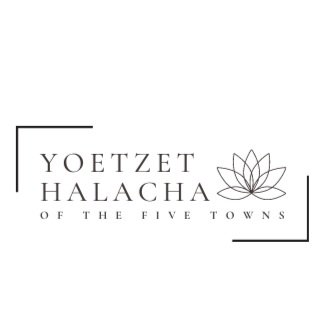Obsessed: Yoetzet Halacha Program Examines Body Image
When I was growing up, this word had a negative connotation and was often used as an adolescent jab toward another, implying that someone likes something excessively, as in: “You’re, like, obsessed with ____,” or “She’s obsessed with me.” But social media has turned the word on its head, where obsession is just a trendier way to say you like something: “I’m obsessed with this skirt,” “obsessed with this Instagram account,” etc.
Body image is a far-reaching topic that affects many areas of our emotional and physical well-being, including, for married couples, their intimate relationship. This year’s annual Yoetzet Halacha of the Five Towns fundraiser, titled “Obsessed,” accentuated the word’s double meaning, relating to the contradicting and confusing ideas people hear about their bodies, and their weight in particular. We know the importance of self-care, self-compassion, and self-confidence and yet we are also bombarded daily with ads and stories about the next diet or exercise regimen that will transform our bodies, which clearly must not be good as they are now. We judge those obsessed with consuming food, yet we fail to notice their similarity to those obsessed with restricting food.
On Monday night, July 20, I had the honor of moderating a Zoom event featuring panelists Rachel Tuchman, LMHC; Mimi Hecht of MimuMaxi; and Leah Loksen of SalonLeah. Mimi spoke from her heart about her own journey with weight loss and gain, diets, acceptance, and education. It was raw, honest, and moving. She talked about the messages from society being very imbalanced and how we only see the thin bodies glorified and we only see the diets that work but never see the crash and burn. Because of this imbalance, we need to reeducate ourselves.
Leah spoke about her experiences with clients mired in a distorted view of themselves. Sometimes this distorted thinking comes from within, but often it is fed by comments from others or by comparison with images from social media. Leah reminded everyone that what they see is filtered and deliberately chosen.
Rachel emphasized her role as a therapist in helping young women recognize that they define for themselves what is acceptable and desirable and that through being our authentic selves, we gain confidence and self-respect. She encouraged us to be more reflective consumers of social media, choosing the messages that we want to hear on social media and muting the voices and images that feed insecurity and negativity. She also encouraged us to be more sensitive to the impact on others of what we post.
During this time of COVID, we are deeply aware of the Torah precept V’nishmartem meod al nafshoseichem, and you shall carefully guard your “life.” The Hebrew word “nefesh” means both life and soul. That the same word carries both meanings reminds us not to isolate health to one area of our body or just to our bodies. As Rachel Tuchman expressed, we should be seeking a more holistic health, one that includes our bodies, our minds, our relationships with friends and relatives, and all the interests and pursuits we value. We need to move away from our obsession with the “perfect” body or the “perfect” life and see the whole of life and appreciate its many aspects.
During the Zoom session, one participant asked why we should shift from a focus on beauty when the Torah itself focuses on outer beauty and describes our Matriarchs’ beauty. I responded that women in the Torah are described as beautiful when it is relevant to the narrative, but the Torah more often leaves us completely in the dark regarding the physical description of characters. We don’t know anything about the appearance of Yocheved, Miriam, Rut, Devorah, Yael. We are told that Sarah was very beautiful so that we understand why Avraham pretended she was his sister. But the behavior, actions, and values of Sarah leave a much more important legacy within the Torah. Sarah’s beauty is irrelevant to us now, but the way she inspired others to believe in G-d, the way she kept her tent and made G-d’s presence palpable within, is the legacy she leaves.
One of the best ways to nurture self-worth and body positivity is to pour our energy into things other than our bodies. As Mimi Hecht said, you can be struggling with body image and still possess and project real confidence. After all, we are our bodies, but we are much more than just our bodies. In Hebrew, the word “shalem” can mean perfect, but it can also mean whole. But sometimes preconceived notions of perfection are the enemy of wholeness. When we pursue and achieve wholeness, we will realize that is perfection.
To receive a recording of the event, please contact us here.
